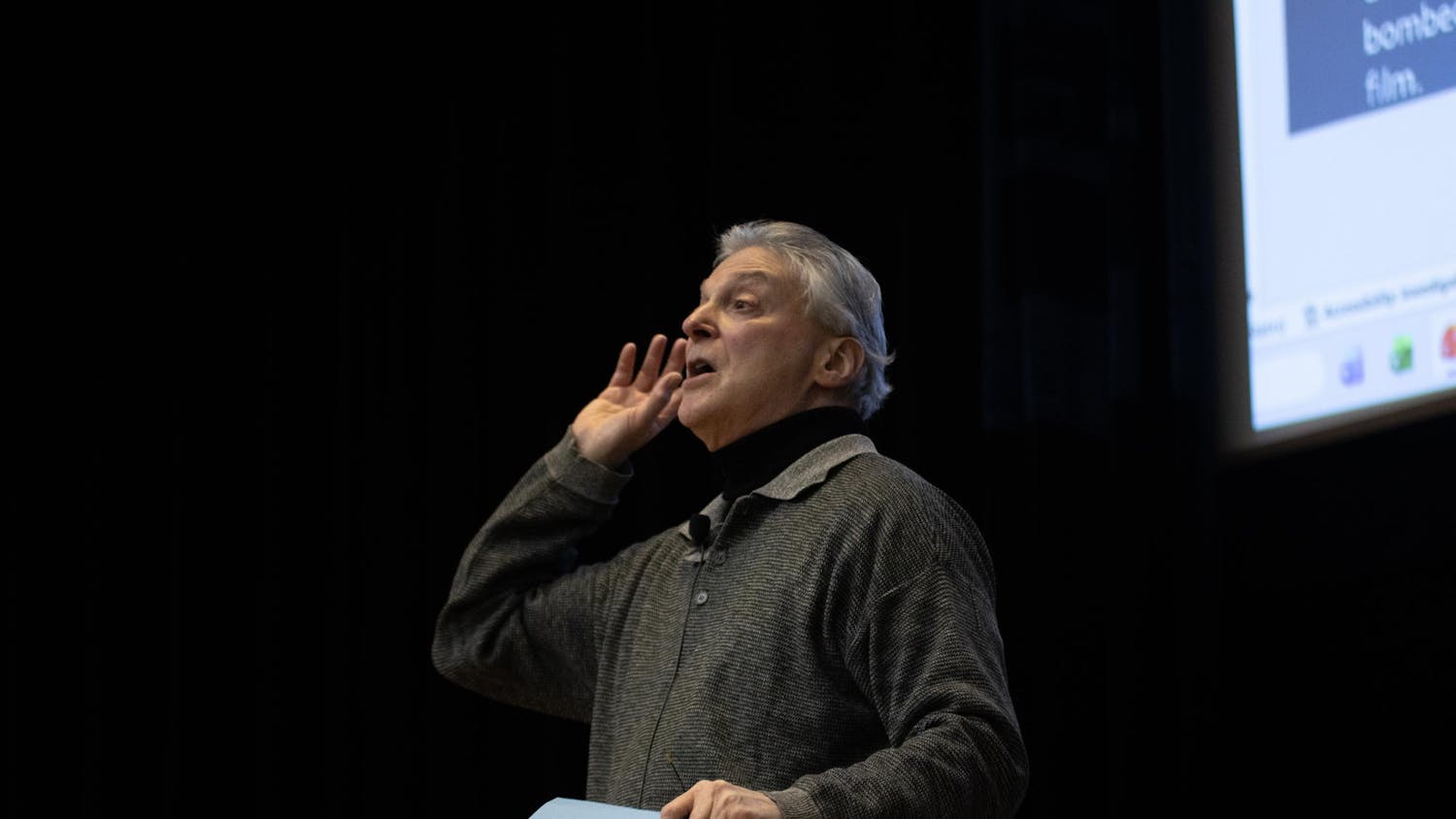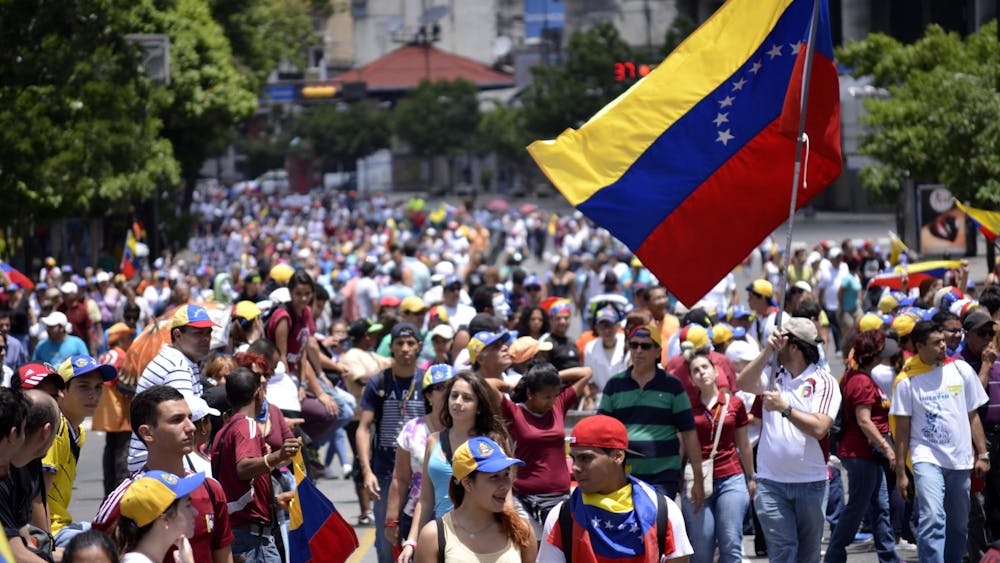Merom Arthur (25C) first signed up to be a poll worker as a junior in high school after her Spanish teacher told her about the opportunity to earn community service hours and get involved in politics. A Virginia native, she brought this experience with her to the Georgia midterm elections, working at Emory’s 1599 Clifton Road polling station.
In preparation for the midterm elections, Emory University students rallied to increase voter education on campus and encouraged their peers to vote. Part of this mobilization effort included students who volunteered their time as poll workers.
Taking on a position typically filled by older employees, these students represent a younger wave of poll workers dedicating their time to helping the voting process run smoothly. In 2018, 58% of poll workers were over 60 years old, while only 8% consisted of people between the ages of 17 and 25, according to Pew Research Center.

Ettan Patel (23Ox) signed up after seeing a call for Oxford College students to work the Newton County polls in Oxford’s newsletter on Sept. 12. Patel, who is registered to vote in his home state of California, viewed the poll worker position as an opportunity to get involved in the Georgia election process.
“I thought it would be a nice opportunity to get involved here in Georgia because I know I wouldn’t be able to vote to impact anything here, but helping with the polls would be a good way to contribute instead,” Patel said.
During his five-hour shift at Newton County’s Turner Lake Center polling station, Patel answered voters’ questions and ensured they were not violating any rules, such as using their phones in the polling room or attempting to influence others’ votes.
Similarly, Khegan Meyers (24B) worked two shifts during the early voting period as a line ambassador at Emory’s 1599 Clifton Road Building polling station, which opened last May. He first took on this role during the May primaries, providing voters with sample ballots and directing them to the polling room.
Meyers said he is used to being one of the youngest people in the room, with the exception of a coworker during the primary elections who was in high school.
“It’s people who want to give back,” Meyers said. “They’ve spent a lot of time out and they haven’t been able to volunteer because of their work-life balance.”
Although Meyers is employed by DeKalb County, he is also an Emory Votes Initiative (EVI) intern, an organization that promotes voting education and helps this polling station run smoothly, alongside the University’s Government and Community Affairs Office and the Operations Office. EVI Program Coordinator Hannah Joy Gebresilassie expressed her gratitude for the volunteers.
“This site would not run if it was not for the staff, the students, the poll workers, the advanced polling staff,” Gebresilassie said. “It just speaks to the passion around elections, and a lot of times when you go to polling sites you see elderly people and they’ve been holding it down for so many years, and I think it’s time for our generation and the younger folks to step in, and I think that’s what we’re seeing happen in real time.”
During her shifts last Wednesday and Thursday at the 1599 Clifton Road location, Arthur’s role as a poll worker was limited to working a table and showing voters into the polling room, but she said it was still meaningful work.
“It wasn’t as time consuming, but it was still important that we were there to help guide people to where they had to go, where they had to exit,” Arthur said. “It would just make the process of voting easier for people because some people come in and they’re flustered because they have to rush to work or they have to rush to their families afterwards.”
Meyers noted that many voters expressed surprise at how easy it was to cast their ballot when he worked the primaries and early voting.
“People kind of had the expectation that … voting would take a really long time,” Meyers said. “There were … more than a couple occasions where I’d be … sitting outside of the poll room and a couple people would come out and be like, ‘That was so fast,’ and so I think the broader picture for that is people are expecting a lot of delay, but it’s still very quick to vote.”
However, Meyers noted this is not the case everywhere, citing legislative barriers to voting access. One such legislative change was the limited number of polling locations that accepted mail-in ballots. He recalled instances when he had to tell people attempting to submit their mail-in ballots that the nearest drop-off point was a 15-minute drive away. Meyers said legislation like this can make it more difficult for citizens to cast their vote and “could have a huge impact on the election overall.”
Meyers also noted that some students might be unable to cast their vote on Election Day because of their class schedule. Some students have advocated that the University designate election days as “days on,” meaning the Emory would cancel classes and instead promote civic engagement. The Rollins School of Public Health began hosting “days on” with the 2020 Presidential Election. Currently, the University provides faculty with the option to take four hours off to vote.
Meyers, who was unable to work the polls on Election Day because he has classes, said the University’s refusal to implement a “day on” is a missed opportunity to mobilize students’ votes.
“You need to get people out and volunteer and do a day of service,” Meyers said. “It’s been a little disappointing to see there’s been a call for an election day on and overall the University hasn’t moved much on that.”
Similarly, Patel was unable to work the polls on election day due to other responsibilities. He said that suspending classes for the day would allow students more opportunities to cast their vote.
“It makes sense that … we would have a day off for that so people have a chance to vote,” Patel said. “It doesn’t become like a difficult thing where people don’t have a difficult time getting their voice out and making their vote count.”







